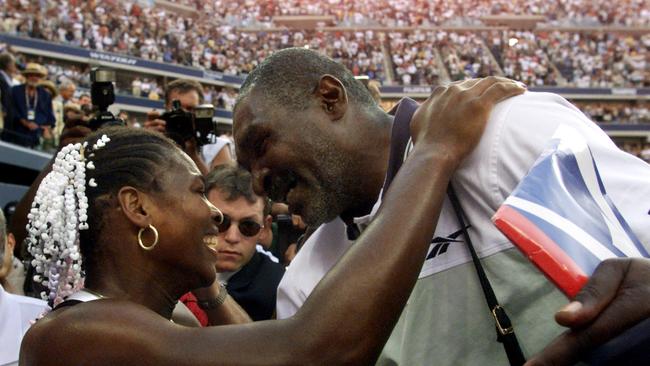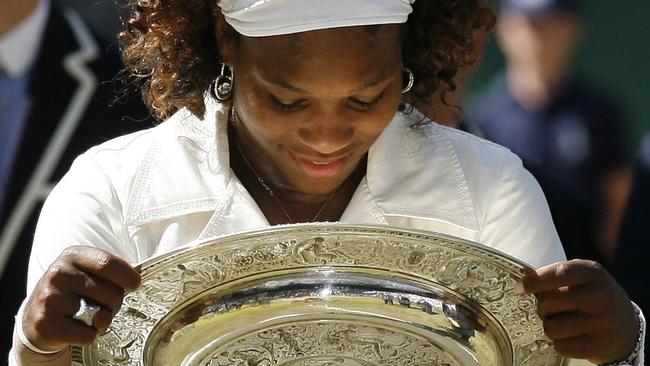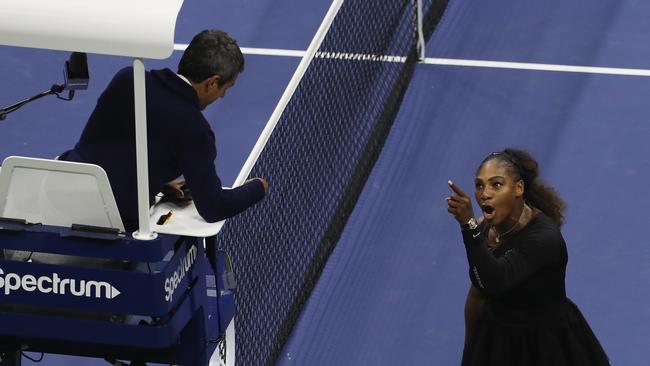Her astonishing longevity defied injuries and racism
The racism Serena endured in a predominantly white middle-class sport was disgraceful. Shamefully, it lingered well into her career.

Had Serena Williams added two more grand slam singles trophies to her collection of 23, then the racquet would have been hung up already. Keeping her going on the court into her 40s was the desperate urge to surpass Margaret Court’s record of 24.
On Tuesday, defeat was finally conceded in Williams’s bid to become the undisputed greatest of all time (GOAT). Some of her loyal supporters will still harbour hopes that she can bow out on a high by winning the US Open next month to draw level with Court, but the tone and wording of the extensive article in Vogue suggests that Williams has come to terms with the idea that claiming seven consecutive victories over the course of a fortnight is beyond her at the age of 40.
This is in no way meant to demean the achievements of Williams during a remarkable professional career lasting 27 years. Many will reasonably claim that she should be subjectively considered the GOAT because of the way in which she lifted the women’s game to new heights. Her major titles were all won during a far more competitive period than the era of Court, who claimed the last of her 24 in 1973.

It is a shame that Williams does not quite get the icing on the cake that her story deserves. From humble beginnings with her sister Venus on the public courts of Compton, California, her journey to become one of the world’s most recognisable athletes is the stuff movies are made of – namely King Richard, the biopic released last year in which Will Smith portrayed the hands-on role that her father and coach played during the childhood of his two tennis-playing daughters.

The racism that Williams endured in a predominantly white middle-class sport was disgraceful. Shamefully this lingered well into her career, forcing her to boycott the Indian Wells Open for 14 years after spectators abused her and her family during the 2001 final in response to Venus pulling out of their scheduled semi-final. Last year, Williams said she was still traumatised by the experience.
Obstacles have also had to be overcome physically. She was absent from the sport for close to 12 months from July 2010 when she badly cut her foot by stepping on broken glass in a restaurant. In March 2011 she was on her “death bed” because of blood clots in her lung, which had only been discovered when she had difficulty breathing en route to an Oscars party.
With this in mind, Williams’ longevity is astonishing. There is no better indication of the eras her career has spanned than some of the names on her list of opponents through the years: Steffi Graf, Monica Seles, Jennifer Capriati, Maria Sharapova, Ashleigh Barty and Naomi Osaka.

Power was the hallmark of Williams’ game. Her serve was fearsome, at speeds of up to 206km/h, and her groundstrokes penetrating off either side. But it would be unfair to merely regard Williams as a big-hitter who blasted her opponents off the court. Her tactical counterpunching was intelligent, her athleticism unrivalled and her mental strength formidable.
Arguably Williams’ greatest triumph was the last of her 23 grand slam singles titles. Before the 2017 Australian Open, she discovered with shock that she was six weeks’ pregnant, yet subsequently won all 14 sets she played during the tournament.
Williams came close to death because of complications during the birth of her daughter, Olympia, in September 2017, but remarkably returned to the tour as a mother only five months later. Understandably, she could never rediscover her dominance, winning only one further WTA trophy at the 2020 Auckland Classic. Four appearances in grand slam finals, at Wimbledon and the US Open in 2018 and 2019, is not to be sniffed at, but she lost all four tamely in straight sets as she desperately tried to draw level with Court.

One particular regret will be her behaviour during her defeat by Osaka at Flushing Meadows in 2018, when she was correctly docked a game for verbal abuse of the umpire Carlos Ramos, had a point penalty for racquet smashing and a code violation for coaching. It was ludicrous of her to claim afterwards that the experienced Portuguese official was being sexist.
The site of her most controversial moment will now host her final act in tennis. It is almost certain that Williams’ career will not end with a trophy but at whatever stage of the draw she exits, 23,000 spectators in the world’s largest tennis venue, Arthur Ashe Stadium, will ensure an emotional and fitting farewell to this incredible woman.
– The Times





To join the conversation, please log in. Don't have an account? Register
Join the conversation, you are commenting as Logout